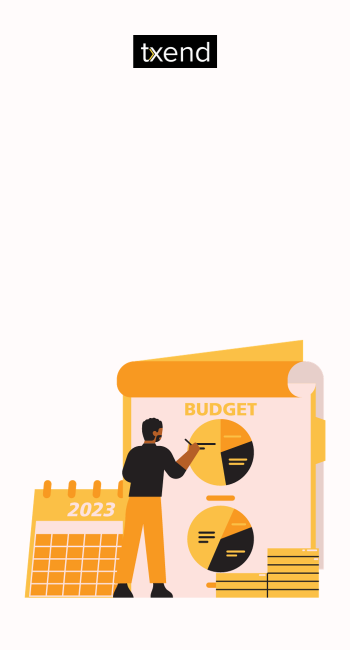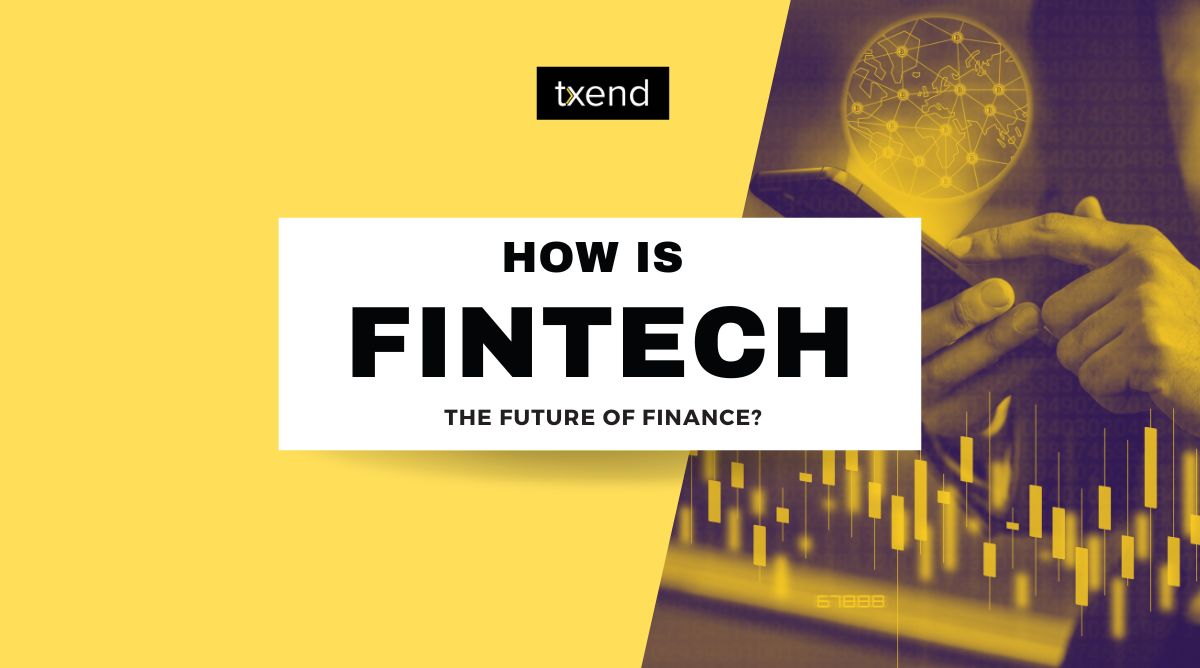Welcome to an exploration of the financial frontier! In this article, we embark on a captivating journey to unravel the question on the minds of many: Is fintech the future of finance in the USA? As we delve into the realms of the future of finance, the evolution of fintech and banking, the fascinating origin of fintech, and its expanding horizons in fintech global markets, we will uncover the transformative forces reshaping the financial landscape.
Is Fintech The Future Of Finance?
Join us as we unveil the next generation of banking, where innovation and technology converge to redefine how we manage, invest, and interact with our finances.
Key Takeaways
- Fintech in the US emerged with electronic trading in the 1960s, evolving into a diverse ecosystem of digital financial services.
- The US fintech market, valued at $1.4 trillion in 2020, features key players, trends like digital banking, and cryptocurrency adoption.
- Fintech disrupts traditional banking with innovations like digital payments, posing challenges and opportunities for traditional banks.
- Fintech expands financial access, empowering underserved populations, offering inclusive banking, and enabling economic empowerment.
- Fintech navigates a complex regulatory landscape, with evolving regulations shaping compliance, innovation, and consumer protection.
- Blockchain, AI, and cryptocurrency redefine finance, enabling smart contracts, personalized services, and global transactions.
- Fintech faces cybersecurity, regulatory, and market risks. Mitigation involves robust security, compliance, diversification, and transparency measures.
Overview of Fintech and Its Evolution in the US
The landscape of finance in the United States has undergone a remarkable transformation in recent years, largely attributed to the rise of financial technology, or fintech. Fintech represents the fusion of technology and financial services, giving birth to a new era of innovation and convenience.
Origins and Growth of Fintech in the US:
Fintech, as we know it today, had humble beginnings. It emerged as a response to the inefficiencies and limitations of traditional banking and financial systems. The early 2000s saw the inception of online payment platforms like PayPal, which paved the way for digital financial transactions.

However, after the 2008 financial crisis, fintech truly began to gain traction in the United States. The crisis exposed vulnerabilities within the traditional banking sector, creating demand for more transparent, accessible, and user-friendly financial services. This environment provided fertile ground for fintech startups to flourish.
Fintech companies in the USA began to disrupt various aspects of finance. Peer-to-peer lending platforms like LendingClub and Prosper redefined the lending landscape by connecting borrowers directly with investors. Robo-advisors like Wealthfront and Betterment offered automated, low-cost investment solutions, democratizing access to wealth management.
Advancements in mobile technology further fueled the growth of fintech. The proliferation of smartphones enabled consumers to access financial services on the go, leading to the emergence of mobile banking apps and digital wallets.
Regulatory changes, such as the JOBS Act of 2012 and the Dodd-Frank Wall Street Reform and Consumer Protection Act, also played a role in facilitating fintech innovation by creating a more conducive regulatory environment.
Today, the fintech ecosystem in the USA is thriving, comprising a diverse array of companies, from established giants like PayPal and Square to nimble startups pushing the boundaries of what’s possible in finance. The industry continues to evolve, with developments in blockchain technology, cryptocurrency, and artificial intelligence promising to reshape finance further.
Current State of the US Fintech Industry
The United States stands at the forefront of the global fintech revolution, with a vibrant and rapidly evolving fintech industry that continues to shape the future of finance.
Here, we provide an insightful snapshot of the current state of the US fintech landscape, showcasing its remarkable growth and influence.
Market Size and Growth:
The most recent data shows that the US fintech market is robust and expanding rapidly. In 2020, the industry was valued at approximately $1.4 trillion, reflecting the substantial demand for innovative financial solutions.
This growth has been further accelerated by the challenges posed by the COVID-19 pandemic, which accelerated the adoption of digital financial services.
In the present year, the fintech market in the United States has achieved a total worth of $4 trillion and demonstrated a compound annual growth rate (CAGR) of 11% throughout the projected period.
Key Players:
The US fintech ecosystem boasts diverse players, ranging from established financial institutions embracing digital transformation to agile startups disrupting traditional banking. Some of the notable names in the industry include:
PayPal:
A global leader in online payments, it continues to expand its services, including adopting cryptocurrency transactions.
Square:
Known for its payment processing solutions, Square has made significant inroads into financial services, offering small business loans and digital wallet services through Cash App.
Robinhood:
A pioneer in commission-free stock trading, Robinhood has redefined the retail investing landscape.
Stripe:
A key player in online payment processing, Stripe provides various tools for businesses to accept payments and manage their finances.

Coinbase:
A leading cryptocurrency exchange, Coinbase has played a pivotal role in popularizing digital currencies like Bitcoin and Ethereum.
Notable Trends:
Several notable trends are currently shaping the US fintech landscape:
Digital Banking:
Digital-only banks, or neobanks, like Chime and Varo, are gaining popularity by offering user-friendly, fee-free banking experiences.
Cryptocurrency Adoption:
Cryptocurrencies have gained mainstream attention, with increasing numbers of individuals and institutions investing in and using digital assets for payments and as a store of value.
Embedded Finance:
Fintech services are being integrated into non-financial platforms, such as e-commerce websites and social media platforms, making financial transactions more seamless and accessible.
Regulatory Developments:
Regulatory bodies are actively addressing the evolving fintech landscape, including the potential regulation of cryptocurrencies and the promotion of financial inclusion.
AI and Big Data:
Artificial intelligence and data analytics continue to drive personalized financial services, from robo-advisors to credit scoring.
Fintech’s Impact on Traditional Banking
The rise of fintech has brought forth a seismic shift in the landscape of traditional banking services in the USA, ushering in a wave of disruption, innovation, and transformation across various sectors.
Here, we delve into how is fintech the future of finance and how it reshapes traditional banking and the intriguing dynamics at play.
Payment Systems Revolution:
Fintech has fundamentally altered the way payments are processed and executed. Digital payment platforms like PayPal, Square, and mobile payment apps have made cashless transactions the norm.
Traditional banking methods, such as writing checks, are rapidly becoming obsolete as consumers and businesses opt for faster, more convenient digital payment options.
fintech
The emergence of cryptocurrencies further challenges the traditional notion of currency, with some experts speculating on their potential to revolutionize global payments.

Lending Reimagined:
In the lending sphere, fintech has democratized access to credit. Peer-to-peer (P2P) lending platforms like LendingClub and Prosper connect borrowers directly with investors, bypassing traditional banks.
This approach has provided individuals and small businesses with alternative funding sources and faster approval processes.
Furthermore, AI-driven credit assessment algorithms analyze a broader range of data, enabling more accurate credit risk assessments and reducing the reliance on traditional credit scores.
Wealth Management for All:
The wealth management sector has seen the proliferation of robo-advisors, making investment services more accessible and affordable.
These automated platforms create diversified investment portfolios based on users’ financial goals and risk tolerance. This shift challenges traditional wealth management firms, which often require higher minimum investments and charge higher service fees.
Challenges for Traditional Banks in the US
Increased Competition:
Traditional banks face intense competition from agile fintech startups offering innovative digital services.
Digital Transformation Costs:
Adopting fintech-like digital infrastructure can be costly for established banks.
Customer Expectations:
Customers now expect seamless online experiences and personalized services, challenging traditional banks to keep pace.
Regulatory Compliance:
Adhering to evolving fintech-related regulations requires significant resources and adaptation.
Opportunities for Traditional Banks in the US:
Partnerships:
Collaborating with fintech firms allows traditional banks to access innovation without starting from scratch.
Enhanced Customer Experience:
Banks can improve service quality by integrating fintech solutions and providing a more user-friendly experience.

Data Utilization:
Leveraging data analytics and AI, banks can offer tailored financial solutions and insights.
Digital Banking Arms:
Establishing digital-only branches or subsidiaries can cater to evolving customer preferences.
Financial Inclusion and Accessibility through Fintech
One of the most promising aspects of fintech’s rise in the USA is its profound impact on financial inclusion and accessibility. Fintech plays a pivotal role in breaking down traditional barriers and ensuring that a broader population can access essential banking and financial services.
Expanding Access to Underserved Populations:
Traditionally, underserved populations, including those with limited access to physical bank branches or poor credit histories, faced significant challenges in accessing essential financial services.
Fintech companies have been instrumental in bridging this gap. Mobile banking apps, digital wallets, and online-only banking platforms have enabled individuals in remote areas or underserved communities to manage their finances conveniently.
Affordable and Inclusive Banking Solutions:
Fintech has introduced innovative and affordable financial solutions that cater to the specific needs of underserved populations.
Neobanks, for instance, offer fee-free or low-cost banking services with minimal account requirements, making banking accessible to those who may have been excluded from traditional banking due to high fees or minimum balance requirements.
Alternative Credit Scoring:
Fintech has also revolutionized the credit assessment process, offering alternative ways to evaluate creditworthiness.
Rather than solely relying on traditional credit scores, fintech companies use a more comprehensive range of data points, including utility bill payments and transaction histories, to assess an individual’s creditworthiness.
This more holistic approach benefits those who need a substantial credit history, such as young adults and recent immigrants.
Microloans and Peer-to-Peer Lending:
Microloans and P2P lending platforms facilitate small-scale borrowing for individuals and small businesses.
These platforms provide access to capital for entrepreneurs, gig workers, and others who may have limited options through traditional banks.
This access to credit can be a catalyst for economic empowerment and business growth.
Financial Education and Inclusion Initiatives:
Many fintech companies prioritize financial education and literacy initiatives as part of their mission.
By providing educational resources and tools, these companies empower individuals to make informed financial decisions, further enhancing financial inclusion.
The Regulatory Environment for Fintech in the USA
As fintech continues to reshape the financial landscape in the United States, the regulatory environment has become critical in ensuring the industry’s stability, security, and growth.
Here, we delve into the regulatory framework for fintech in the USA, recent developments, and their implications for the industry’s future.
Historical Perspective:
The regulatory landscape for fintech in the USA has evolved over the years, reflecting the rapid growth and innovation within the industry.
Historically, fintech companies have faced a complex patchwork of federal and state regulations, which often varied significantly from one jurisdiction to another.
This fragmented landscape presented challenges for both fintech startups and traditional financial institutions.
Recent Regulatory Developments:
Various federal and state authorities have taken steps to modernize and adapt regulations in response to the burgeoning fintech sector and the need for regulatory clarity. Some notable recent developments include:

OCC Fintech Charter:
The Office of the Comptroller of the Currency (OCC) introduced the Special Purpose National Bank Charter for fintech companies.
This charter allows fintech firms to operate as banks on a national level, subject to federal regulations, providing them with a more streamlined regulatory framework.
State-Level Initiatives:
Several states, such as New York and California, have introduced fintech-specific regulations and sandboxes that provide a controlled environment for fintech startups to test and develop their products while ensuring consumer protection.
Consumer Financial Protection Bureau (CFPB):
The CFPB has been actively monitoring and regulating consumer-facing fintech services, focusing on issues like transparency, fair lending, and anti-discrimination.
Cryptocurrency and Digital Assets:
The regulatory framework for cryptocurrencies and digital assets remains a complex and evolving landscape. Regulatory agencies like the SEC and CFTC are actively working on guidelines to address the unique challenges posed by these digital assets.
Impact on the Fintech Industry’s Future:
The regulatory environment is a double-edged sword for the fintech industry.
On one hand, clear and balanced regulations can provide legitimacy and consumer trust, encouraging investment and innovation.
On the other hand, overly burdensome or inconsistent regulations can stifle innovation and impede market entry for startups.
The recent developments in fintech regulation in the USA aim to balance fostering innovation and safeguarding consumers’ interests.
A more cohesive and comprehensive regulatory framework can create a more predictable environment for fintech companies to operate, attracting investment and talent to the industry.
Emerging Technologies Shaping the Future of Finance:
Within the fintech landscape, emerging technologies are at the forefront of transforming how financial services are accessed, delivered, and experienced.
Here, we delve into three key emerging technologies—blockchain, artificial intelligence (AI), and cryptocurrency—and their profound impact on the future of finance in the USA.
Blockchain Revolution:
Blockchain technology, often associated with cryptocurrencies like Bitcoin, is redefining the way transactions are recorded and verified. Its decentralized and tamper-resistant ledger has far-reaching applications beyond cryptocurrencies:
Smart Contracts:
Blockchain enables the creation of self-executing smart contracts, automating and streamlining contract execution in various industries, from insurance to real estate.
Supply Chain Transparency:
Blockchain ensures transparency and traceability in supply chains, reducing fraud and enhancing trust in the origins of products.
Digital Identity:
It offers secure and verifiable digital identity solutions, simplifying user authentication and reducing identity theft risks.
Cross-Border Payments:
Blockchain can revolutionize cross-border transactions by reducing intermediaries and transaction times, potentially making remittances more affordable.
AI-Powered Financial Services:
Artificial intelligence is transforming financial services through data analysis, automation, and personalization:

Robo-Advisors:
AI-driven robo-advisors provide tailored investment advice based on individual goals and risk profiles, making wealth management accessible and affordable.
Credit Scoring:
AI algorithms analyze vast datasets to assess credit risk, extending credit access to those with limited traditional credit histories.
Fraud Detection:
AI systems continuously monitor transactions, identifying irregularities and mitigating fraud in real time.
Chatbots and Virtual Assistants:
AI-powered chatbots offer 24/7 customer support and streamline interactions in online banking and financial services.
Cryptocurrency and Digital Assets:
Cryptocurrencies like Bitcoin and Ethereum have garnered significant attention, challenging traditional notions of currency:
Digital Store of Value:
Cryptocurrencies serve as digital stores of value, offering potential protection against inflation and currency devaluation.
Decentralized Finance (DeFi):
DeFi platforms, built on blockchain technology, provide a range of financial services like lending, borrowing, and trading without intermediaries.
Central Bank Digital Currencies (CBDCs):
Governments are exploring the development of CBDCs, digital versions of their national currencies, with the potential to enhance payment systems and financial inclusion.
NFTs (Non-Fungible Tokens):
NFTs represent ownership of unique digital assets, opening new possibilities in art, collectibles, and digital ownership.
These emerging technologies are not only shaping the future of finance but also driving innovation, competition, and new opportunities in the fintech industry.
As they continue to mature and evolve, their integration into the financial landscape of the USA will be pivotal in defining the next generation of banking and financial services, making them more efficient, accessible, and inclusive.
Challenges and Risks in Fintech: Mitigating the Future of Finance
While fintech holds immense promise, it also brings forth a set of challenges and risks that require careful consideration and mitigation strategies to ensure the sustainable growth and stability of the industry.
1. Cybersecurity Concerns:
Challenge:
Fintech companies deal with vast amounts of sensitive financial data, making them attractive targets for cyberattacks and data breaches.
These breaches can result in financial losses, reputational damage, and harm to consumers.
Mitigation:
- Robust Security Measures: Fintech firms must invest in state-of-the-art cybersecurity technologies, encryption, and regular security audits.
- User Education: Educate users on best practices for data security, such as using strong passwords and enabling two-factor authentication.
- Incident Response Plans: Develop comprehensive incident response plans to address breaches promptly and minimize their impact.
2. Regulatory Compliance:
Challenge:
Fintech operates in a complex regulatory landscape, subject to various federal and state regulations and evolving international standards. Ensuring compliance can be a significant challenge.
Mitigation:
- Regulatory Expertise: Fintech companies should employ legal and compliance experts to navigate the regulatory environment effectively.
- Continuous Monitoring: Stay updated on regulatory changes and adapt compliance processes accordingly.
- Proactive Engagement: Collaborate with regulatory authorities to ensure alignment with evolving regulations and industry standards.
3. Potential Market Bubbles:
Challenge:
Rapid growth and speculation in specific fintech sectors, particularly cryptocurrencies and digital assets, can lead to market bubbles that may burst, causing financial instability.
Mitigation:
- Diversification: Encourage diversification in investment portfolios to reduce exposure to individual assets or sectors.
- Transparency: Promote transparency in the valuation and trading of assets to prevent speculative bubbles.
- Regulatory Safeguards: Support regulatory measures to prevent market manipulation and ensure investor protection.

4. Data Privacy and Ethics:
Challenge:
Fintech companies gather vast amounts of user data, raising concerns about data privacy and ethical use of personal information.
Mitigation:
- Strict Privacy Policies: Implement clear and comprehensive privacy policies that outline data collection and usage practices.
- Data Encryption: Employ strong encryption methods to protect user data from unauthorized access.
- Ethical AI: Ensure that AI algorithms used for decision-making are transparent, fair, and unbiased.
5. Technological Risks:
Challenge:
Fintech heavily relies on technology, making it vulnerable to technical failures, system glitches, and operational risks.
Mitigation:
- Redundancy: Implement redundant systems and backup solutions to minimize downtime in case of technical failures.
- Testing: Conduct thorough and quality assurance to identify and rectify system vulnerabilities.
- Operational Resilience: Develop robust plans to respond effectively to technological disruptions.
Addressing these challenges and risks is essential to build and maintain trust in the fintech industry.
Fintech companies, regulators, and stakeholders must work collaboratively to balance innovation and risk mitigation, ensuring that fintech continues to drive positive change in the future of finance in the USA.
Conclusion
While fintech’s ascent is undeniable, it is important to recognize that the future of finance in the USA will likely be a symbiotic relationship between fintech and traditional banking.
But the real question is fintech the future of finance? Yes, It is as Fintech brings innovation, agility, and accessibility, while traditional banks offer stability, trust, and regulatory experience. The coexistence of these forces is likely to define the financial landscape in the years to come.
In closing, as we unveil the next generation of banking, the fusion of fintech and finance is a dynamic evolution where innovation knows no bounds. It is not just the future but the ever-unfolding present, a journey toward a more inclusive, efficient, and interconnected financial world.
In the USA, fintech’s remarkable journey is intertwined with the future of finance, creating a landscape with promise, opportunities, and exciting prospects for all.
Frequently Asked Questions
Fintech is reshaping finance, enhancing accessibility, and driving innovation, making it a pivotal part of the future of finance.
Fintech disrupts traditional banking with digital solutions, from online lending to mobile payments, creating efficiency and convenience.
Global markets expand fintech reach, driving innovation and creating opportunities, but also demanding adaptability to diverse regulatory landscapes.
Fintech’s roots trace back to electronic trading in the 1960s, evolving into a tech-driven revolution, democratizing finance worldwide.



